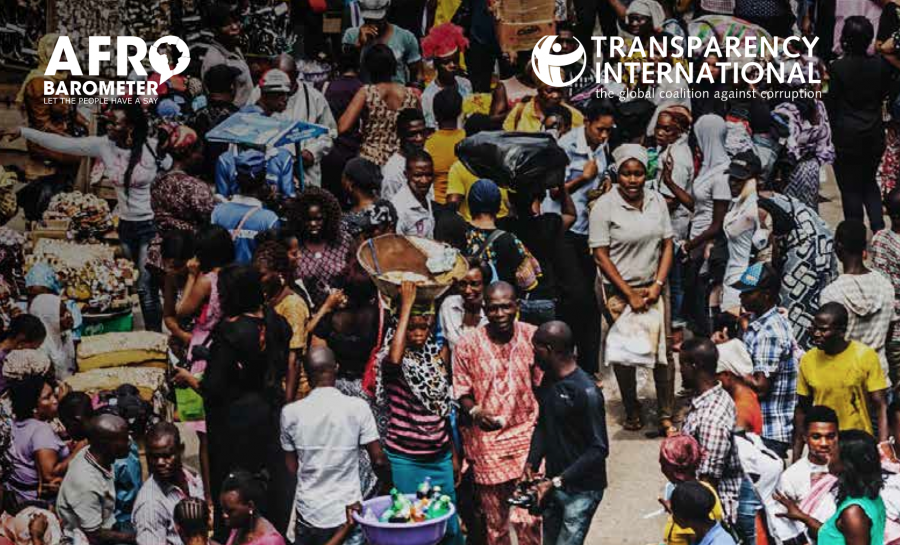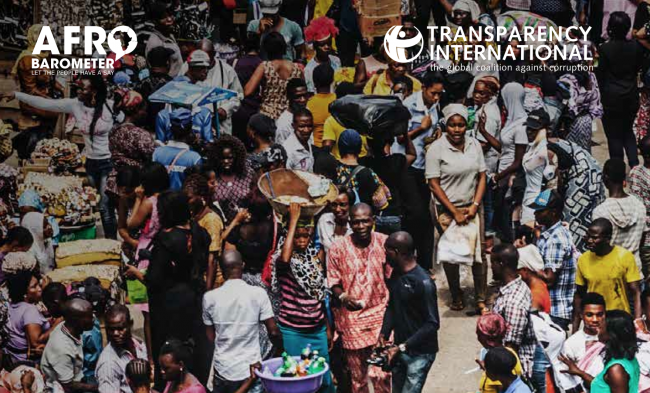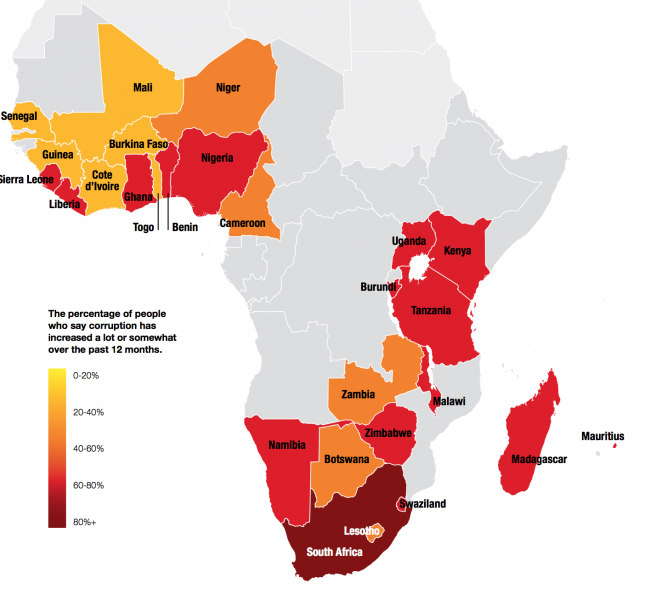
Corruption on the Rise in Africa, Especially South Africa – Report
Almost 60 percent of Africans believe that corruption in their countries has increased over the past year, although in South Africa this figure is 83 percent, according to a new survey released on Tuesday. According to Transparency International’s Global Corruption Barometer for 2015, done together with Afrobarometer, it spoke to 43,143 respondents across 28 countries […]

Almost 60 percent of Africans believe that corruption in their countries has increased over the past year, although in South Africa this figure is 83 percent, according to a new survey released on Tuesday.

According to Transparency International’s Global Corruption Barometer for 2015, done together with Afrobarometer, it spoke to 43,143 respondents across 28 countries in Sub-Saharan Africa between March 2014 and September 2015 to ask them about their experiences and perceptions of corruption in their country.
Across Africa, several presidents have spoken against graft recently – among others, in Kenya, Nigeria and especially Tanzania (where the newly elected president John Magufuli said his government will not tolerate corruption) – but the report found that 64 percent of respondents think their governments are doing a poor job at fighting it.
In South Africa, anti-corruption marches took place in Pretoria and other places at the end of September. Corruption allegations have touched the highest levels of some South African government agencies, including Eskom, South African Airways and the SA Police Services. In Cape Town, in fact, 10 policemen appeared in court on Tuesday charged with fraud and corruption for demanding bribes.
The government’s website asks people with corruption information to contact the National Anti-Corruption Forum at 0800 701 701, or they can also use the listings for government department corruption hotlines given at Corruption Watch.
“It is time to say enough and unmask the corrupt,” Transparency International Chairman Jose Ugaz was quoted as saying in a news report.
According to the report, across the region, the police and business executives are seen to have the highest levels of corruption. The police have regularly been rated as highly corrupt, but the strongly negative assessment of business executives is a new development.
“Shockingly, we estimate that nearly 75 million people have paid a bribe in the past year – some of these to escape punishment by the police or courts, but many also forced to pay to get access to the basic services that they desperately need,” the report said.
There are a few countries in which citizens see low levels of corruption in their public institutions and see corruption as on the wane in their own country. The views of citizens in Botswana, Burkina Faso, Lesotho and Senegal are particularly positive.
Transparency International said a majority of Africans perceive corruption to be on the rise and think that their government is failing in its efforts to fight corruption; and many also feel disempowered as regards to taking action against corruption. In Sierra Leone, Nigeria, Liberia and Ghana citizens are the most negative about the scale of corruption in their country.
There is no government which is rated positively on its anti-corruption efforts by a clear majority of its citizens. Out of 28 governments, 18 are seen as completely failing to address corruption.